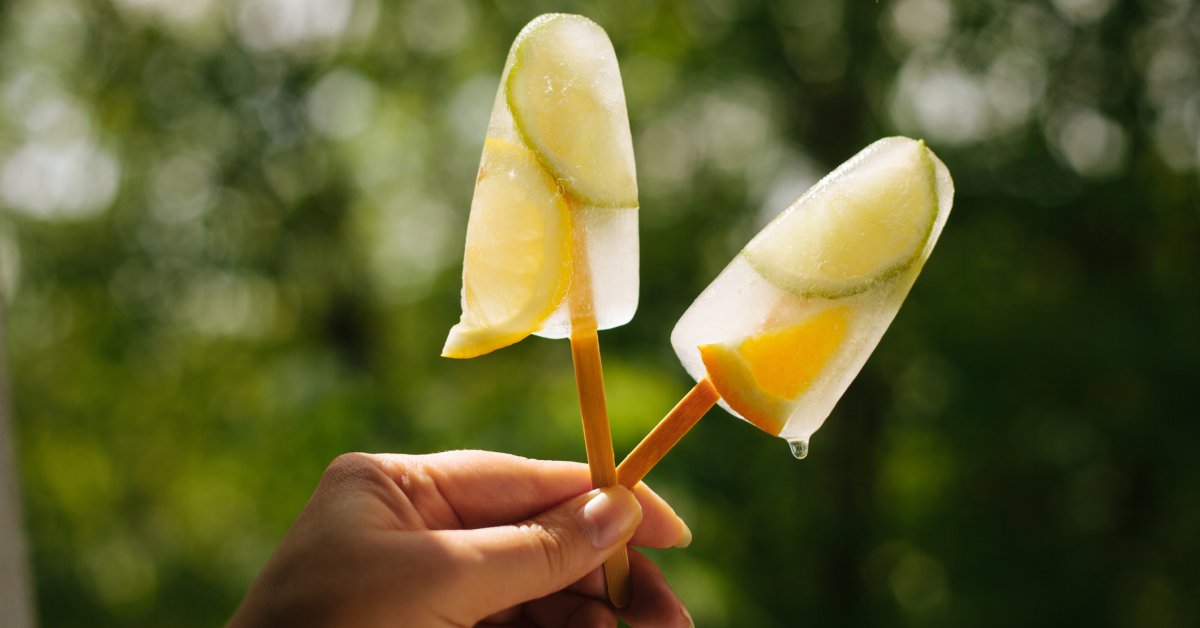Summer has always been a two-headed beast. It’s the season of hiking, biking, softball, swimming, frisbees in the park, afternoons at the beach. Then too, it is the season of heat waves—of sweating through even your lightest cotton clothes, of climbing into a blast furnace car that’s been sitting in the sun all day, of triple-digit temperatures leaving you spent, wilted, irritable, and unmotivated. Practically every aspect of your life is affected when thermometers pop their tops—including your diet. What you eat—or even if you eat—is intimately entwined with day to day temperatures. And with another heat wave set to scorch the eastern U.S. this week, it pays to know now what food choices to make.
Hot weather is a known appetite-suppressant, with the body seeking to thermoregulate by limiting the excess heat generated by digestion. One 2018 study in PLOS Biology found that the brain’s hypothalamus has heat-sensing proteins that are generated when temperatures rise, creating the sensation of satiety and fullness even if you haven’t eaten. But your need for nutrition is as great when it’s hot out as it is when it’s cold. The key is not only making time to eat, but picking the right things to eat—foods that replenish fluids, electrolytes, and other nutrients that a heat wave takes away from you. What are the best hot weather foods and how can you build them into a beat-the-heat diet?
Foods to avoid
A good start in determining what to eat in the heat is knowing what not to eat. Heavy, greasy foods are a general no-go. That fried chicken picnic lunch or grilled ribs cookout may seem appealing, but such fat- and calorie-dense foods can be harder to digest, raising body temperature and leaving you feeling overheated and sluggish. “Choose smaller, lighter meals to keep your body fueled and cool,” says Lena Beal, a registered dietician nutritionist and spokesperson for the Academy of Nutrition and Dietetics.
Read more: What to Drink to Stay Hydrated—And What to Avoid
Snack foods can present other problems. “Salty processed foods [such as] chips and cured meats can worsen dehydration by increasing sodium intake, especially if you’re not drinking enough fluids,” says Martha McKittrick, a registered dietician practicing in New York City.
Two hot weather staples—cold beer and iced tea—may also be doing your body no favors. Alcohol and caffeine are diuretics, stimulating the urinary system and causing you to excrete water at the very time you need it the most. “It’s better not to have diuretics, because in the long run they will cause you to become more dehydrated,” says Theresa Gentile, a certified dietician nutritionist and a spokesperson for the American Academy of Nutrition and Dietetics.
Full-fat dairy and high-sugar drinks and foods can cause other problems. The dairy slows down gastric transit, causing digestion to grind along slower than it otherwise would and increasing body temperature as a result. Sugar, meantime, messes with hydration.
“If you’re having too much sugar in your foods it can worsen dehydration because it pulls fluids into the gut,” says Gentile. “You’re better off with flavored water. I also encourage people to make their own fresh fruit pops.”
Go-to foods
The foods you should include in your diet in hot weather are a lot more numerous than the ones you should exclude. In place of heavy grilled meats, for example, go for lean, cold protein, including hard boiled eggs, tuna salad, salmon salad, and cold shrimp salad, says Gentile. Legume-based salads can also be high in protein and easy to digest. Do remember that such foods are very perishable and need to be handled properly in the heat.
“Hot weather increases the risk of food-borne illnesses,” says Beal. “Keep cold foods cold—below 40°F—and don’t leave perishable items out for more than one hour in high heat.”
Read more: The Most Efficient Way to Run Your AC During a Heat Wave
Even more important than what you’re eating is what you’re drinking. Your body loses water fast in the heat, and replacing it all takes some doing. Drinking eight to 12 eight-ounce cups of water a day is a good starting point. “When temperatures soar, water needs rise,” says Beal, “especially if you’re sweating more. Don’t wait until you’re thirsty. Sip fluids throughout the day.”
One way to determine if you’re becoming dehydrated, according to Gentile: check your urine color. If it’s dark yellow you’re low on water.
It’s not just water that’s lost to the heat; it’s electrolytes too. Electrolytes are minerals that carry an electrical charge when dissolved in water. They include sodium, potassium chloride, calcium, magnesium, phosphate, salt, and more, and they help regulate a host of bodily operations, including nerve and muscle function, nutrient transport, blood clotting, energy production and bone health. Plenty of electrolytes are found in foods, but in the summer you often need a quicker hit than you’d get from sitting down to a meal. For that, you can turn to sports drinks, coconut water, and some fruit drinks, including watermelon juice, orange juice and tart cherry juice.
Fruits and vegetables are rich sources of both water and electrolytes too. The average piece of produce is 80% water, with watermelon topping out at 90% and cucumbers at an almost all-water 97%. McKittrick also recommends oranges, berries, lettuce, celery, and tomatoes as good summertime choices. And Beal suggests including mint or basil in fruit or vegetable salads, to provide additional flavor without added salt or sugar. Smoothies can be another good way to get the hydration and electrolyte benefits of fruit in a cold and sweet treat that spares you the heavy sugar and dairy hit of ice cream or a milk shake.
When it comes to regulating body temperature, some people find that spicy foods can actually be beneficial in the heat, since they stimulate sweating, which ultimately cools you down. “Some cultures in hot climates like the Middle East and Mexico do eat spicy foods in the heat,” says Gentile. But it’s best to make sure you’re fully hydrated before tucking into fiery wings or salsa. Spicy foods can lead to stomach irritation, especially if you don’t have enough water in your system. “I would eat spicy foods in moderation,” says Gentile, “and if you’re not used to it I wouldn’t suggest starting it.”
Summertime picnics and barbecues have always been part of the joy of the season. Choosing fun and satisfying foods and choosing smart and healthy foods need not be two different things.








